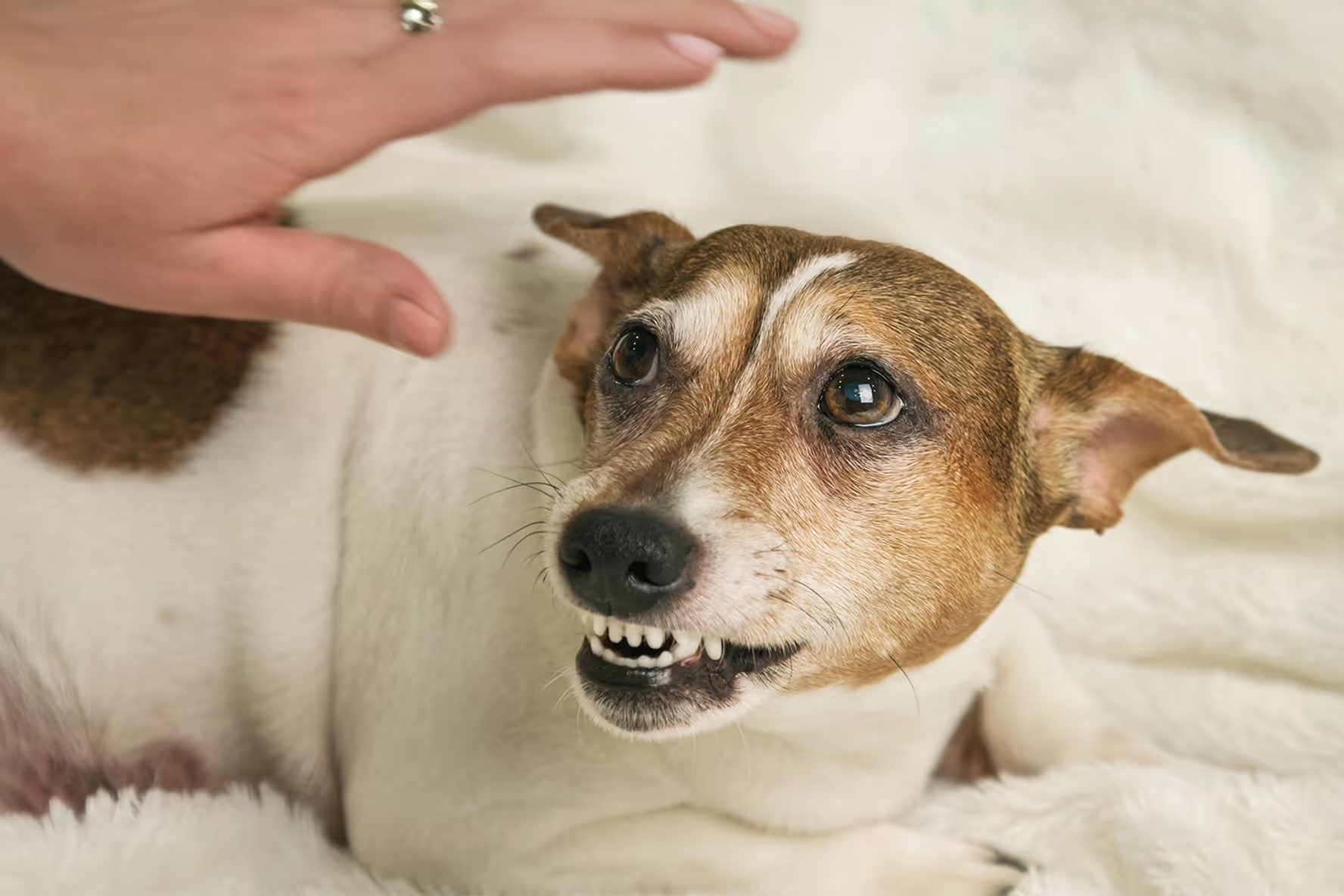
As your dog ages, pet parents know that there are changes to expect. From the puppy to the adult phase, we know that there is a mellowness in behavior that develops, and from adult to senior, we see our pets tire quicker. It’s no surprise to us that as our dogs age, they start to get sick more often and are more likely to have long-term health problems.
Signs your dog is aging
The most obvious sign is, of course, your dog’s age. Large breed dogs are typically considered seniors at around age 5-6, while small breed dogs are at age 6-7.
There are also outward signs of your dog’s aging. Their faces start to grey around the muzzle and some dogs may start to show clouding in their eyes. Many dogs entering the mature phase of their senior years will start to gain excess weight as well.
You may also start noticing some changes in your pet’s behavior or mental processes. Your senior dog may start sleeping more often than they had been before. Or they may display lower energy levels towards the activities that would have excited them before.Some may become grumpy; this change in mood is often the result of an underlying issue. Pain from arthritis, for example, can make your dog warier of being pet in certain areas.1
What disorders are senior dogs more likely to have?
There are several ailments that senior dogs are more prone to developing than their younger counterparts. While it's not a certainty that your pet may encounter any kind of disease, it is important to stay vigilant and pay close attention to their behaviors. Noticing when something out of the ordinary occurs and mentioning your concerns to a vet is the best first step to ensuring their health as they age.
Nutritional issues
The senior phase for dogs has two phases, mature and geriatric, each of which requires different nutritional focuses because of how the body is processing nutrients. Many dogs who transition from adult to mature and mature to geriatric don’t receive all of the nutritional updates that should be made in conjunction with their body’s changes. It’s always best to discuss your dog’s individual needs with your vet, but in the meantime, we have a resource that goes through the different nutritional needs of your pet as they age.
Arthritis
Arthritis affects a senior dog’s joints and can make it both difficult and painful for your dog to get around. This is a disease that can cause your dog to become slightly more irritable when petted due to the interior pain in their joints. Dogs with arthritis often show their symptoms subtly: they have a hard time going up and down stairs, getting up from a lying position, or staying upright on slippery floors. Some dogs may work hard to refrain from showing any pain due to a natural survival instinct of not wanting to get left behind by their pack. Keep an eye out for any changes in their movements, even if it’s as simple as your dog choosing to exclusively lay down or stand over sitting.2,3
Eye disorders
There are many different ways that your dog’s eyes can be affected by aging. This can be something as simple as their vision worsening, or as complicated as developing cataracts. Many dogs’ eyes will become weaker and have a harder time seeing as they get older, the same way that lots of human adults begin needing reading glasses as they age. And cataracts are somewhat common in dogs, though mostly found in seniors. Cataracts are a cloudy film found within the eye that can cause blindness if left untreated; they are often treated with the same process used to treat human eye cataracts. Some breeds may have trouble with tear production consistency and develop dry eyes because of it.2,3
Hearing loss
Many older dogs will also experience hearing loss, as they get older the nerves in their ears will often degenerate leading to a gradual loss of hearing. Unfortunately, there is nothing that can be done at this time to treat this kind of hearing loss in senior dogs. Thankfully, the loss comes slowly which gives both you and the dog time to adapt to the change. As their hearing starts to falter, you are able to start implementing hand signals and touch commands to help your dog stay in communication with you.2,3
Skin Tumors
Many senior dogs will develop lumps and bumps on their skin. While they are a common occurrence for senior dogs, every time you notice a lump developing on your dog’s skin you should have it checked by a vet to make sure that it is not cancerous. More often than not, the bumps are benign and will only need to be removed, or may require no treatment at all. If your vet says that a lump or bump doesn’t need to be removed, it’s important for you to monitor that growth regularly to assure that it is not growing.2,3
Urinary Incontinence
Incontinence is the scientific word for not having complete control over your bladder. Senior dogs may lose the strength in their internal muscles that make it so they can’t always “hold it” efficiently. While there are times that incontinence is just a side effect of aging, it can also be a sign that there may be underlying health issues. If you notice this change be sure to talk to your vet and get your dog checked out. If there aren’t any other health issues at hand, perhaps a change in schedule to take your senior out for more bathroom breaks is your best option.2,3
Cognitive dysfunction
As they get older, some dogs will lose the confidence they once had and become forgetful and more easily confused. A lot of the time when a dog starts to show these changes in their cognitive processes and behaviors it could be a sign of a more impactful disease like dementia or other mental disease associated with older dogs. Some dogs may show signs of cognitive dysfunction through pacing without purpose, seeming lost or confused, not interacting with family as much, vocalizations, and more. These signs should trigger you to take them to your vet. While there is not currently a cure for any form of cognitive dysfunction, some cases may benefit from medications or supplements.2,3
Cancer
Cancer is easily one of the most common problems senior dogs face today. Senior dogs are significantly more likely to encounter a cancer diagnosis than their younger counterparts. About half of all dogs over the age of 10 will pass on due to a cancer diagnosis over any other reason. However, not all cancer diagnoses have to feel like the end of your dog’s life, as there are many different treatment options for all kinds of cancer. While some treatments may just work to keep the disease at bay, others may completely eradicate it from your dog’s system. Talking with your vet about the best options for your pet may be very uplifting even if the diagnosis isn’t the greatest to hear.2,3
Senior dog upkeep
Many senior dogs will encounter health problems—it comes with the territory of getting older. While many of these can be worrisome and draw attention to the time you have left with your furry family member, they don’t always have to be scary. By being aware of what your pet may be going through in their older years, you can proactively watch out for their health and safety and prevent serious issues before they become too serious.
It’s very important to regularly see your vet. Perhaps even increasing the frequency of your visits from once a year to every six months or even quarterly. Regularly checking in with your vet and making sure that everything is running smoothly for your pet can help prevent a severe prognosis from an illness. Running blood tests often can help identify any diseases affecting your dog’s internal organs and allow treatment to be the most effective. And regularly seeing your vet may make it easier for them to notice any changes that your pet may have that you didn’t see due to your constant proximity.1
Learn more about Senior Dog Care with ImpriMed’s informational blog series.


